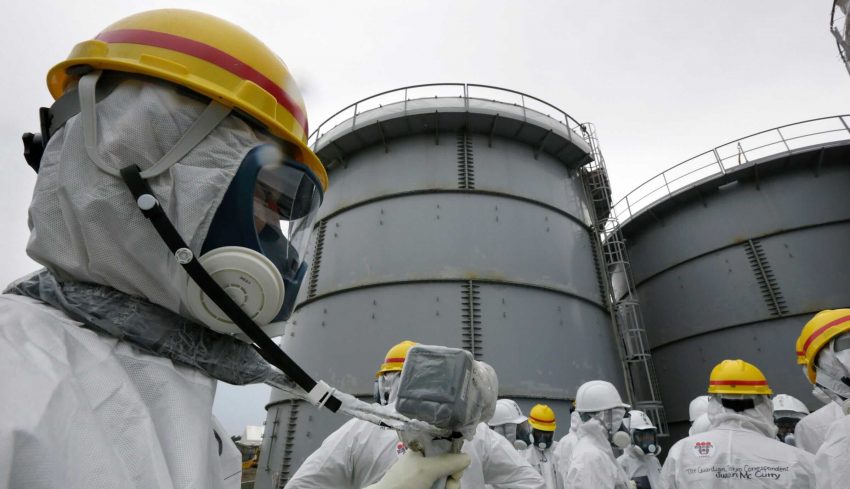A month away from the expected discharge of treated radioactive water into the Pacific Ocean, Japan has offered to meet a high-level delegation from the Pacific Islands Forum (PIF) in its attempt to assure that the process is safe for the environment and health of peoples of the Pacific.
“I’m pleased to report that the Japanese Prime Minister Fumio Kishida has agreed to meet a high-level delegation from the Forum as early as the 07 of February in Japan.”
“That for me is an indication that Japan is also, even at this stage, wiling to engage meaningfully with us here in the Pacific, revealed Henry Puna, the Secretary General of the Pacific Islands Forum.
The offer to meet with Pacific Leaders comes as the PIF Panel of Expert reveals its finding of ‘inadequate, incomplete, inconsistent and biased data’ by the Tokyo Electric Power Company (TELCO), owners of the Fukushima Daiichi power plant. The Panel of Experts is recommending a stop to the release date until Pacific Leaders are provided verifiable scientific evidence to guide their decision.
One of the Experts, Dr Ferenc Dalnoki-Veress revealed that after analysing 4.3 years of data from the TEPCO, the team cannot fully determine what is in the treated water.
“We don’t really know what is in the water. There were serious problems with the data both in form and in quality, Dr Dalnoki-Veress told a public seminar on their findings from data collected from TEPCO’s Fukushima Daiichi power plant.
“The Panel found that some of TEPCO’s samples had been inadequate, incomplete, and at times inconsistent and even biased.
“Incomplete meaning that relevant data are missing from the sample – or important information were not included in the analysis. Inadequate refers to the large gaps indicating that not enough information is collected to provide a thorough analysis, inconsistent refers to data discrepancies.
He said missing relevant data sample from TEPCO made it difficult for the Experts to measure what’s in the tanks.
Secretary General Puna assured the Panel of Experts that TEPCO will meet with them to respond to concerns raised in their findings.
“I’ve also indicated to Japan the meeting with our Panel of Experts will not take place unless all the information that has been requested by our Panel of Experts to TEPCO are provided, otherwise the meeting will be meaningless, said Puna.
Japan’s Nuclear Regulatory Agency was given the greenlight to dump contaminated water stored at the Fukushima nuclear power plant following the March 2011 disaster. The agency said the discharge of the water, which has already undergone a decontamination process, does not represent a risk for the marine ecosystem and people’s health, despite the residual presence of tritium isotopes.
The water, treated in the Advanced Liquefied Processing System (ALPS), removes almost all the radioactive substances and stores them in thousand tanks that have now reached their maximum capacity.
The Pacific Islands Forum will continue to engage the Government of Japan through the PALM process to raise the concerns of Leaders.
“This hasn’t been an easy issue to deal with. The reality is that Japan has been a longstanding partner for us here in the Blue Pacific. Our relationship with Japan has been established under the Pacific Island Leaders Meeting (PALM) process where Japan Prime Minister meets our Pacific Leaders every two years. Our last meeting was in July 2021, PALM 9 where the issue of the release of the untreated water was raised by our leaders.
“I recalled very clear commitment that was made at that meeting by the Prime Minister of Japan and our Leaders that in order to deal with this issue, we need to progress using international consultations, international law and using verifiable scientific evidence and assessment to guide us on the way forward.
“I believe that is why our leaders have set up this panel in accordance with that agreement in 2019 so they can be guided by scientific evidence to help them to make a decision that is right not just by Japan but also by us here in the Pacific, said SG Puna.
In March last year, the Pacific Islands Forum appointed an independent panel of global experts to support Pacific nations in their consultations with Japan over its intentions to discharge treated nuclear wastewater into the Pacific Ocean.
The independent Panel of Experts comprised of Dr Ken Beusseler, senior scientist and oceanographer of the Woods Hole Oceanographic Institution, Dr Arjun Makhijani, President of the Institute of Energy and Environmental Research, Dr Anthony Hooker, Director of the Centre for Radiation Research at the University of Adelaide, Dr Ferenc Dalnoki-Veress, Adjunct Professor at the James Martin Centre for Non-proliferation studies at Middlebury Institute of International Studies and Dr Robert Richmond, Research Professor at the University of Hawaii.
